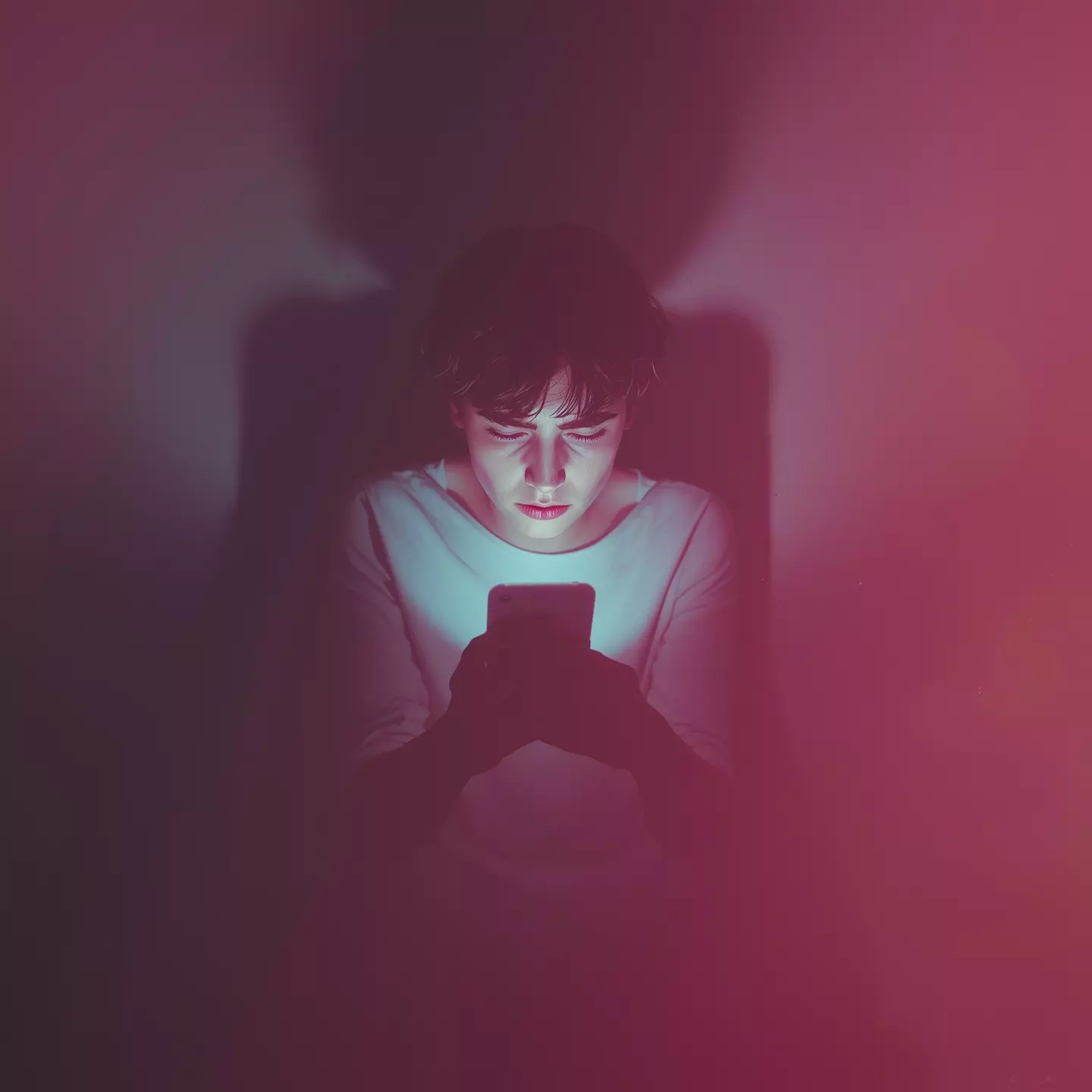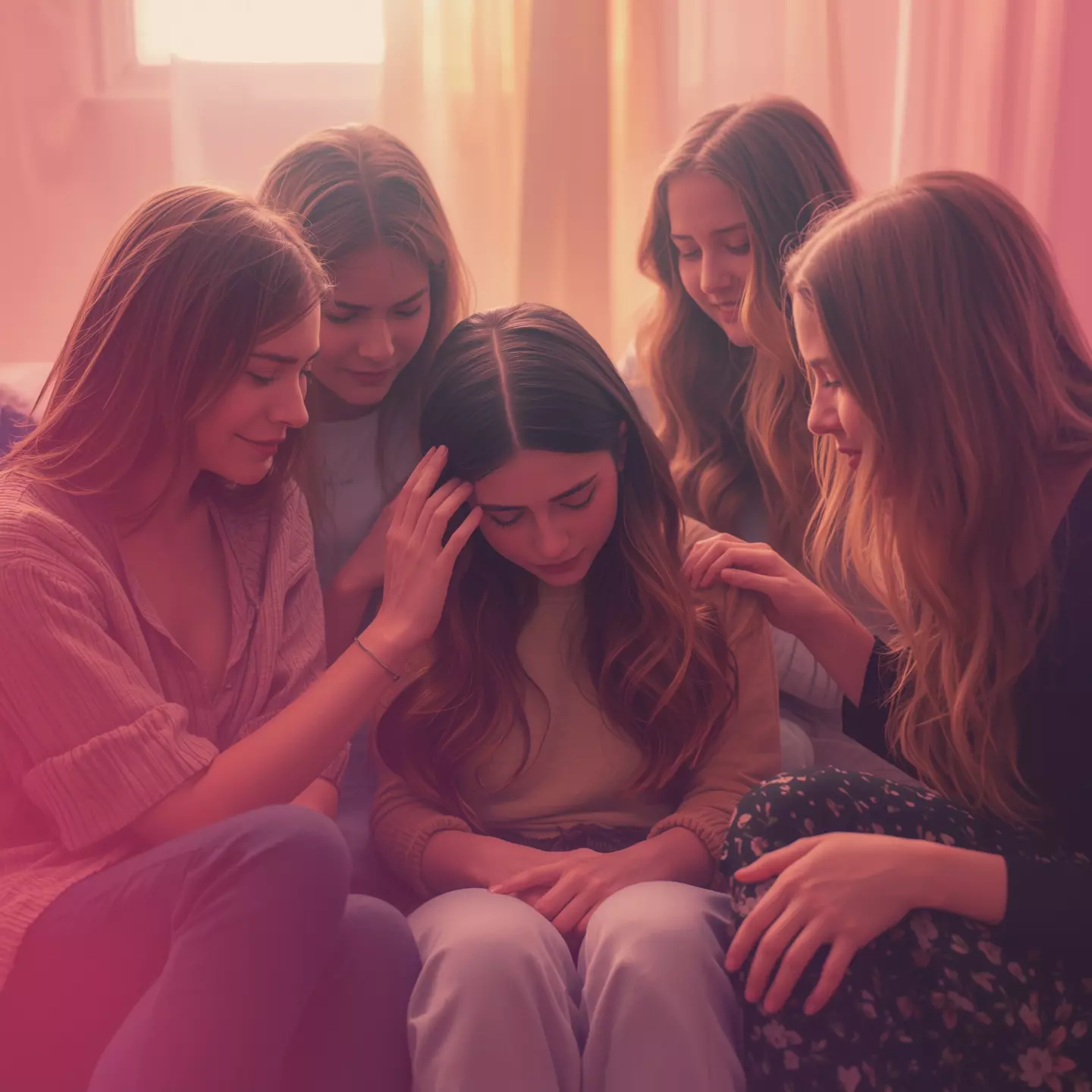Table of Contents
There’s a familiar script many of us fall into when coping after a breakup. We sit in the quiet, staring at our phones, drafting and deleting messages we’ll never send. We ache to reach out, but then the thought creeps in: I don’t want to bother anyone. It sounds noble, even considerate. But beneath that thought lies a lie—one that keeps us lonely when we most need connection.
The Fear of Being a Burden

After heartbreak, silence often feels safer than vulnerability. We tell ourselves that if we keep it in, we won’t risk rejection, judgment, or pity. But research shows that avoidance—choosing to carry everything alone—doesn’t soothe pain. It magnifies it.
In one study, people who leaned on avoidance and self-punishment after a breakup were more anxious and depressed months later than those who allowed themselves to reach out. Hiding what hurts doesn’t shrink it. It only makes the ache heavier.

Coping with the First Month After a Breakup
Let’s examine coping with the first month after a breakup in: Shock, Panic & implosion, Managing Daily Overwhelm (Survival Mode), The No-Contact Gauntlet, Emotional Outbursts – Rage, Crying & “What Is Wrong With Me” Moments, Coping Alone vs Reaching Out and Your First Glimpse of Hope
Tap here to read more →Why Sharing Helps More Than We Think
The truth is, opening up doesn’t burden people—it creates bonds. Decades ago, psychologist Bernard Rimé showed that even brief sharing of emotions changed how people felt and deepened their sense of connection.
Think about that: a fifteen-minute conversation with a friend could shift your inner weather, reminding you that you’re not as alone as you feel. What we fear will drive others away often does the opposite—it draws them closer.
Social Support and Coping After a Breakup

Stress researchers have long found that social support isn’t just a comfort—it’s a shield. When life hits hard—as it does in the wake of a breakup—supportive relationships soften the blow.
- People who feel supported cope better emotionally
- Their bodies handle stress more effectively
- Asking for help activates one of the strongest protective forces we have as human beings
Healing after a breakup isn’t about proving we can survive alone. It’s about remembering we were never meant to. The lie that we’re “bothering” people keeps us in silence, but the truth is, those who love us want to be let in. And sometimes, the bravest step forward is the quietest one: reaching for the phone, and allowing someone else to hold a piece of the weight.
FAQs
FAQ
Q1. Why do I feel like I’m bothering people when I reach out after a breakup?
That feeling often comes from fear of rejection or judgment. In reality, most people want to support loved ones through tough times, and sharing your feelings strengthens connections rather than weakens them.
Q2. Is coping after a breakup better alone or with support from others?
Research shows that coping after a breakup is more effective when you lean on social support. Isolation often increases stress and sadness, while reaching out buffers the emotional impact.
Q3. How can talking to friends help me heal after a breakup?
Even short conversations can shift your mood and reduce feelings of loneliness. Emotional sharing creates bonds and reminds you that you don’t have to carry the weight of heartbreak by yourself.
Q4. What if I don’t want to overwhelm my friends while coping after a breakup?
You don’t need to share everything at once. Start small—let people know you’re struggling, and give them a chance to show up for you. True friends will want to support you, not feel burdened.
Scientific Sources
-
B. Gehl et al. (2023): Attachment and breakup distress: The mediating role of coping strategies
Key Finding: Higher pre-breakup attachment anxiety predicted elevated depressive and anxious symptoms post-breakup, mediated by avoidance and self-punishment coping.
Why Relevant: Shows that coping alone and self-punishment worsen breakup distress, reinforcing the danger of the ‘I don’t want to bother anyone’ mindset.
https://www.ncbi.nlm.nih.gov/pmc/articles/PMC10727987/ -
B. Rimé, B. Mesquita, S. Boca, P. Philippot (1991): Beyond the emotional event: Six studies on the social sharing of emotion
Key Finding: Brief emotional sharing can significantly impact emotional states and spark further connection through social sharing.
Why Relevant: Demonstrates that opening up to others creates connection and healing instead of being a burden.
https://www.psychologytoday.com/us/blog/lying-on-the-philosophers-couch/202008/i-dont-want-to-bother-others-with-my-own-emotions -
Sheldon Cohen & S. Leonard Syme (1985): Stress, social support, and the buffering hypothesis
Key Finding: Social support buffers psychological and physiological impacts of stress, especially in high-stress situations.
Why Relevant: Underscores how reaching out during breakups activates protective effects against distress.
https://en.wikipedia.org/wiki/Social_support
- How to Set Healthy Boundaries After a Breakup: Essential Ways to Still Get Support

- Online Breakup Support That Actually Heals: Can Forums Really Help You Move On?

- Toxic Positivity Exposed: Why It Hurts More Than It Helps After a Breakup

- Avoiding the Drama Triangle: Powerful Ways to Escape Gossip, Enabling & Toxic Support

- The Ultimate Breakup Buddy System: 5 Positive Ways to Heal Without Backfiring

- Therapy vs Friendship After a Breakup: The Healing Choice You Need to Make

- Why Asking for Help After a Breakup Feels Impossible (And How to Finally Do It)

- The “I Don’t Want to Bother Anyone” Lie: The Truth About Coping After a Breakup

- Who to Call After a Breakup: Healing Support & Painful Voices to Avoid


Leave a Reply